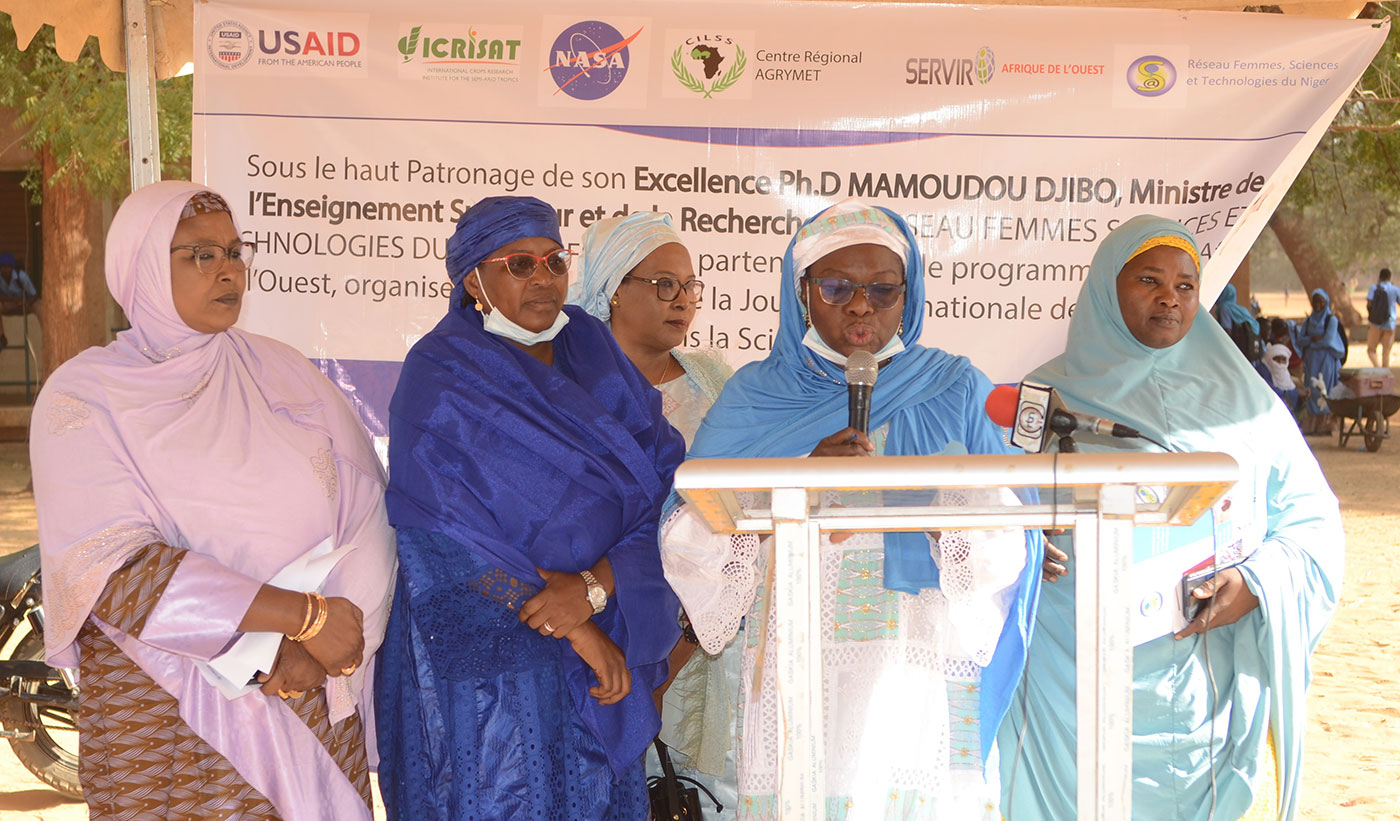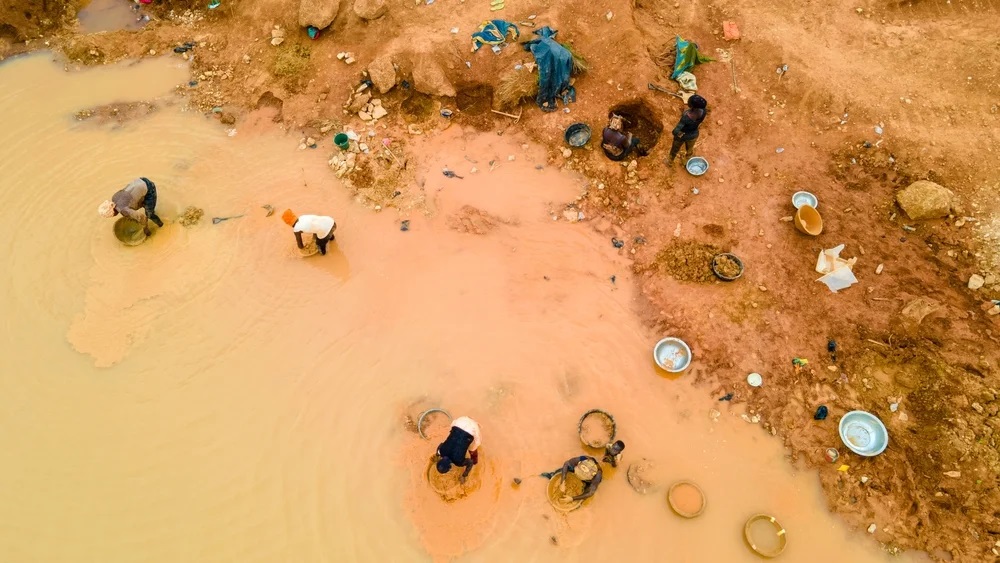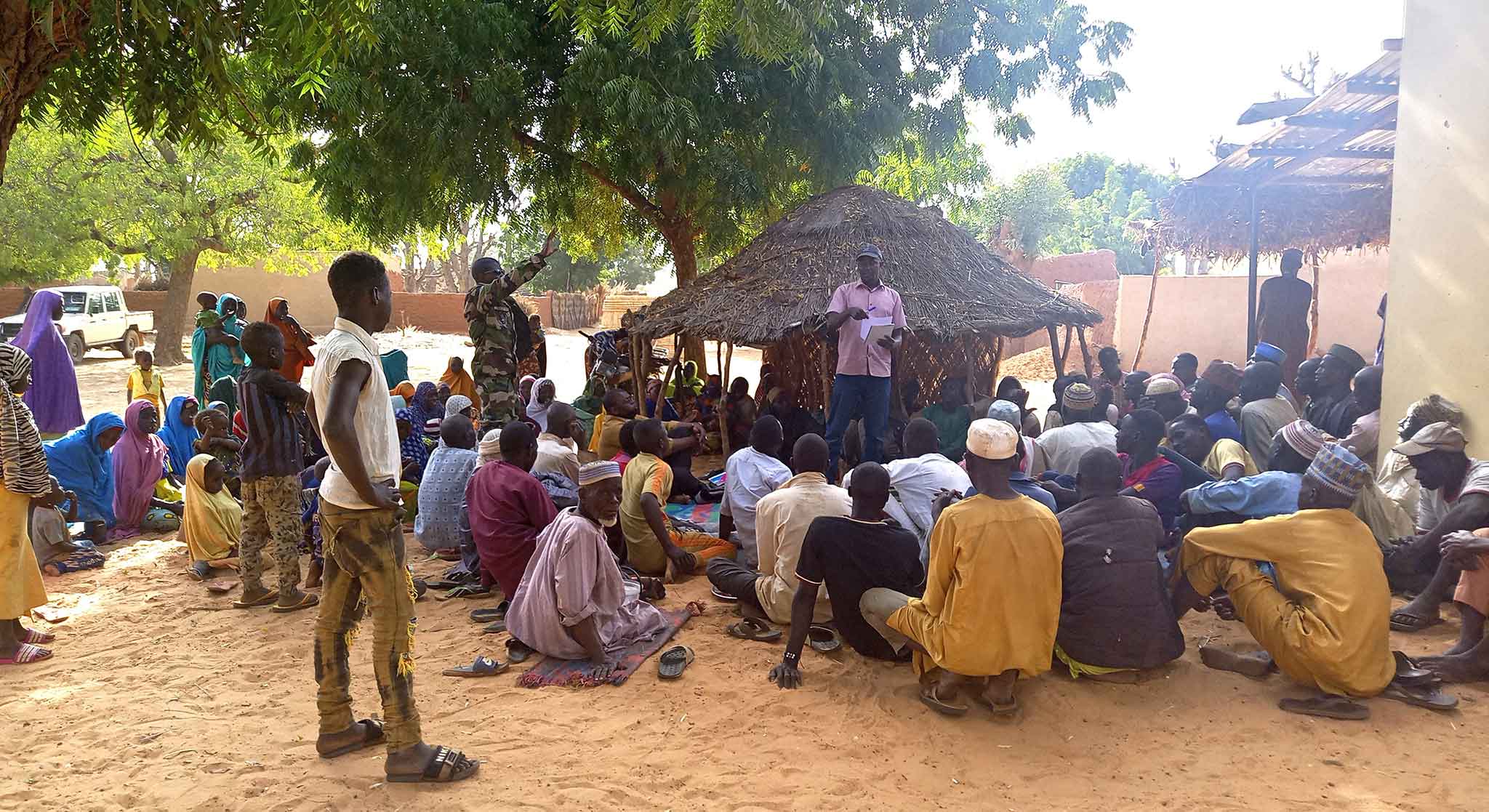The SERVIR Program in West Africa, a joint USAID-NASA initiative implemented by ICRISAT, is working to encourage more girls and women in Niger to pursue Science Technology Engineering Mathematics (STEM) fields for a more fair and prosperous society.
SERVIR has partnered with the Niger Network of Women in Science and Technology (RFSTN) to promote gender equality where girls in the West African nation have low school enrollment rates and are vastly underrepresented in scientific fields.
The RFSTN seeks to combat gender stereotypes and raise awareness among girls about the benefits of science and technology as career pathways.
Mamoudou Djibo, Minister of Higher Education and Research in Niger, emphasized the gender gap in science, stating that barely 33 percent of researchers are women and they receive less funding for their research compared to men.
He also highlighted that women are less likely to be promoted to leadership and scientific positions.
“Women in Niger currently represent only 22 percent of professionals working in the field of artificial intelligence and 28 percent of graduates in engineering.
These gross under representations limit our ability to foster inclusive and sustainable solutions to modern problems and to build a better society for all.
“We must remember that women and girls play an essential role in the scientific and technological community and that their participation must be strengthened,” said Minister Djibo.
Pr Seini Modi Haoua, Executive Director of the Office of the Network of Women in Science and Technology in Niger, said that the network aims to promote the contribution of women and girls in science and technology in Niger and beyond.
“The network has a specific objective of raising awareness among girls from an early age to combat gender stereotypes and prove to them that they can succeed perfectly in science and technology.
Through events such as the International Day of Women and Girls in Science, the network is raising the interest of young girls in space science and has made them aware of the benefits of geospatial technologies and ‘Earth Observation’ for sustainable development.
“By encouraging young African girls to pursue studies related to space sciences, the network wants to build a more equal world and significantly contribute to the empowerment of girls and women,” said Pr Haoua.

The International Day of Women and Girls in Science celebration was chaired by the Minister of Higher Education and Research, Dr Mamoudou Djibo and was held at the Lycée ISSA Korombé in Niamey, Niger.
Director General of ICRISAT, Dr Jacqueline Hughes commended the Niger Network of Women in Science and Technology and said that encouraging women and girls to pursue careers in STEM fields is not only a matter of gender equality but also essential for social and economic progress.
“By utilizing the talents and potential of half of our population, we can drive innovation, creativity, and growth while addressing critical global challenges.
“By improving the participation of women and girls in STEM fields, not only will individuals benefit, but entire communities and societies as well.
“As a strong advocate for empowering women and girls to pursue careers in science, ICRISAT will continue to champion their cause.
“We will continue to break down gender barriers to create a world where everyone has equal opportunities to pursue their dreams, regardless of gender” said Dr Hughes.
During its first phase, the SERVIR West Africa program established SERVIR clubs within several schools in pilot countries, working extensively with youth. The goal of these clubs is to encourage girls to embrace STEM and to raise awareness of global environmental issues. A total of 25 SERVIR clubs were established (including 9 in Niger) involving nearly 500 students with 46 percent of girls.
SERVIR Phase II has now commenced.
Header image: Members of the Network of Women in Science and Technology of Niger (RFSTN)




